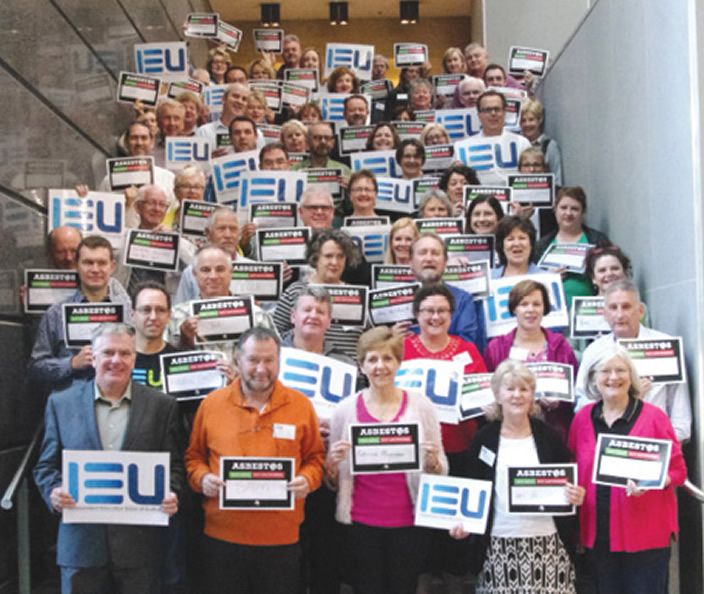
Recently, IEU Branch Executive Committees of Management came together in Canberra for the 2016 IEU National Conference, Challenges and Opportunities to discuss the international and domestic attacks on quality education and working rights.
Participants heard from a range of speakers including, Marshall Jarvis, General Secretary of Ontario English Catholic Teachers’ Association (OECTA) and Patrick Roach Deputy Secretary of NASUWT (the UK’s largest education union) who highlighted the erosion of quality education due to current political ideology.
Marshall Jarvis outlined the fight against increasing workloads due to increasing testing regimes which teachers in Catholic schools in Ontario were experiencing.
OECTA members had a strong message to governments and employers. The message was that the voice of teachers in curriculum, in testing regimes, in classroom management was the voice of reason. Teachers knew what was needed for quality education and government should stop interfering in education and let teachers get on with their job.
Conference participants were also made aware of the recent UK legislation, which would remove every school in England from local government control and into academy control.
UK academies are fully public funded independent schools under the control of private and for profit organisations such as business, universities, faith and charity groups. Academies are not required to comply with the national standards, the national curriculum nor follow any regulated salary and working conditions.
Such actions are a direct attack on working conditions of teachers and education professionals. Conference participants, by a show of hands, signalled their support of NASUWT colleagues as they continue to fight to protect working conditions.
Brave new aggressive world of work
The neo liberal attacks are not limited to education and conference participants were challenged by Josh Bornstein (Principal at Maurice Blackburn Lawyers) to consider the implications of a ‘brave new technological world’ of work where Uber apps are the employers and workers are exploited by company franchises such as 7-Eleven.
Funding challenges for schools
A presentation on school funding was provided by Colette Coleman (Executive Director Independent Schools Australia) who highlighted the need for certainty and stability of government funding for the growing independent sector. Participants were made aware of the impact that insufficient funding would have on the schools, resources for the delivery of education and wages.
The conference was also addressed by Tanya Plibersek, Deputy Leader of the Labor Party, who spoke of Labor’s pledge to provide an extra $4.5 billion to all schools in 2018 and 2019 as well as additional funding to support for students with special needs
The need for strong global unions
Participants heard from Union Aid Abroad APHEDA regarding the growing asbestos industry in South East Asia. The continued mining and manufacturing of asbestos poses a threat to the lives of people across the planet through asbestos related diseases. Participants were called to join the APHEDA campaign Asbestos. Not Here. Not Anywhere , www.apheda.org.au/asbestos
Organise and mobilise for strength
It is a harsh reality that only 15% of workers are in unions. More troubling than this, is the significant loss of young workers to the union movement; the next generation of union leaders.
Conference participants were challenged by Tim Lyons Research Fellow for think tank Per Capita and Ged Kearney President of ACTU, to consider ways to mobilise for union strength. By the end of the conference, all participants had reaffirmed the need for strong active union membership in the fight for better working conditions for all.


































































































































